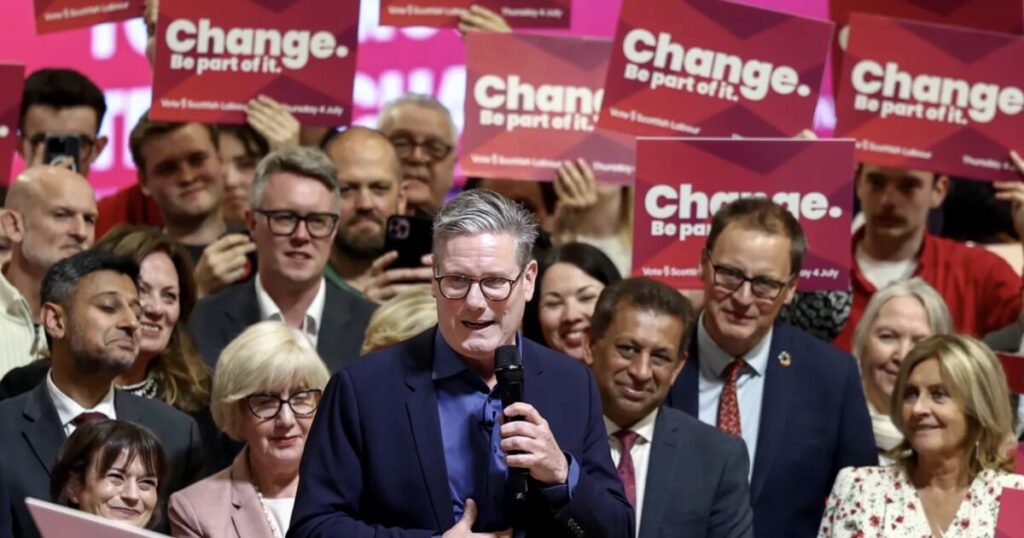In a significant political move, the British Labour Party is planning to deploy nearly 100 staff members to the United States to assist Vice President Kamala Harris’s campaign ahead of the upcoming presidential election in November 2024. Led by Sofia Patel, these Labour operatives are set to focus on key battleground states, including Nevada, North Carolina, Pennsylvania, and Virginia. Patel’s public announcement on LinkedIn highlighted her efforts to rally Labour staff to support Harris, who aims to become America’s first female president. This initiative, however, has ignited controversy, as many view it as a form of foreign interference in U.S. elections.
Criticism of the Labour Party’s decision to send campaign staff to assist with U.S. elections has been vocal and widespread. Prominent figures, such as billionaire tech entrepreneur Elon Musk and former Trump aide Sebastian Gorka, have expressed outrage at what they deem “illegal” and “outrageous” actions by the Labour Party. Gorka characterized this initiative as a manifestation of desperation, drawing parallels to past foreign interference in American politics. Furthermore, he questioned the permissibility of such actions, suggesting that it would be unacceptable for American political figures to engage similarly in British elections.
While the Labour Party asserts that the individuals involved are funding their travel and participating on their own time, critics argue that this distinction does little to mitigate the ethical and legal concerns surrounding foreign involvement in American elections. The activity raises questions about how closely aligned this assistance is to the democratic process in the U.S. Notably, while the Federal Election Commission (FEC) allows foreign nationals to volunteer in campaigns, it strictly prohibits any form of financial contributions or participation in campaign decision-making.
The implications of this move extend beyond mere strategic campaigning and touch upon the complexities of U.S. election laws. According to FEC regulations, foreign nationals may volunteer for campaigns but cannot take part in decision-making processes. Moreover, the line between volunteering and monetary contributions becomes blurred when one considers expenses. Individuals can pay for their travel expenses as long as they fall within set limits; however, if those exceed specified thresholds, they might be classified as in-kind contributions, raising further ethical dilemmas.
The Firestorm sparked by the Labour Party’s initiative can also be seen as part of a broader conversation surrounding election interference and foreign influence. As both political parties in the U.S. grapple with concerns about external meddling, the involvement of foreign entities—especially in a crucial election year—becomes a focal point. Critics argue that such interference undermines the integrity of American democracy, while proponents claim that globalization and international collaboration in political matters are increasingly inevitable in an interconnected world.
In conclusion, the Labour Party’s decision to mobilize staff to support Kamala Harris’s campaign has not only stirred public and political debate but also ignited calls for stricter rules around foreign involvement in U.S. elections. The ongoing discussions about the limits of volunteerism in political campaigns, particularly with foreign nationals, underline the complex interplay between national laws, ethical standards, and the inherent challenges in a globalized political landscape. The outcome of this initiative and its potential consequences could further shape the discourse on international relations and electoral integrity in the future.

